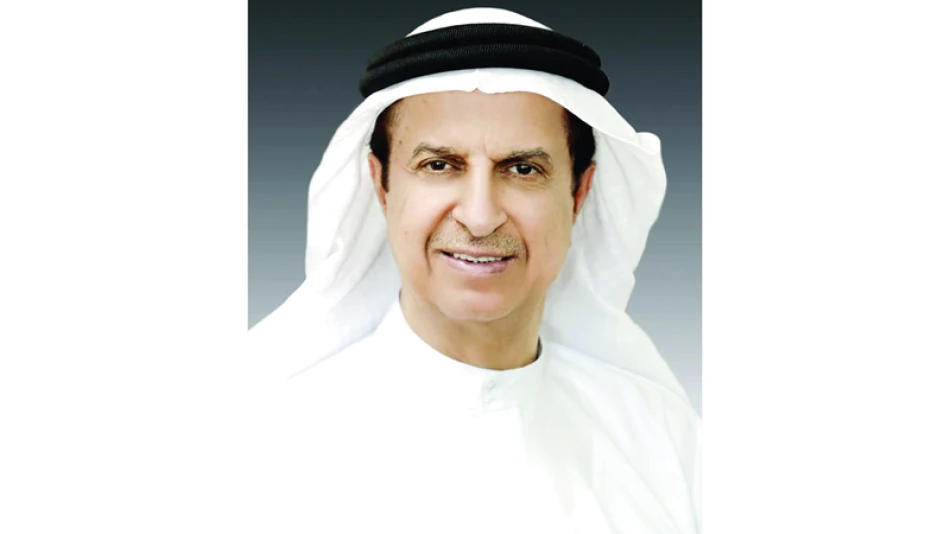
Ministry of Health Launches 'Summer Without Accidents' Campaign to Enhance Road Safety
UAE Launches Multi-Agency Summer Safety Blitz to Combat Heat-Related Deaths and Traffic Accidents
The UAE's Ministry of Health and Prevention has partnered with the Interior Ministry to launch an ambitious "Summer Without Accidents" campaign, targeting the country's twin seasonal challenges: soaring temperatures that can reach 50°C and increased road traffic during vacation months. The initiative represents a shift toward proactive public health policy, combining traffic safety with heat illness prevention in a comprehensive approach that could serve as a model for other Gulf nations facing similar climate extremes.
Why Summer Safety Matters in the Gulf
The UAE's summer months present unique public health challenges that extend far beyond typical seasonal concerns. With outdoor temperatures regularly exceeding human tolerance levels and increased domestic travel during school holidays, the convergence of extreme heat and heavy road usage creates a perfect storm for preventable casualties.
Heat-related illnesses spike dramatically during Gulf summers, particularly affecting outdoor workers, children, and elderly populations. Simultaneously, road accidents tend to increase due to driver fatigue, dehydration-induced impaired judgment, and the dangerous practice of leaving children unattended in vehicles where temperatures can become lethal within minutes.
Strategic Prevention Over Emergency Response
The campaign's emphasis on prevention rather than treatment reflects a broader shift in UAE health policy toward anticipatory governance. Dr. Hussein Al-Rand, Assistant Undersecretary for Public Health, emphasized that the initiative provides "clear impact measurement methodology" that enables policymakers to improve policies and allocate resources more efficiently.
This data-driven approach aligns with the UAE's National Quality of Life Strategy 2031, which prioritizes measurable improvements in citizen wellbeing. By collecting real-time data on prevention effectiveness, authorities can adjust interventions mid-season and build evidence for future policy decisions.
Practical Interventions with Measurable Impact
The campaign includes field activities across the Northern Emirates focusing on specific, actionable safety measures: mandatory first aid kits in vehicles, regular hydration schedules for drivers, prohibition of heavy meals before travel, mandatory sunglasses use, and strict protocols for driver substitution during fatigue or fever.
Perhaps most critically, the initiative addresses the recurring tragedy of children left in vehicles—a problem that has plagued Gulf countries for decades. With car interior temperatures capable of reaching 70°C within 30 minutes, this single intervention could prevent numerous preventable deaths.
Regional Leadership in Climate-Adapted Public Health
The UAE's integrated approach positions it ahead of regional peers in climate-responsive health policy. While countries like Saudi Arabia and Kuwait have implemented heat-related work restrictions, few have combined traffic safety with heat illness prevention in a single, measurable framework.
This integration makes practical sense: summer road travel in the Gulf inherently involves heat exposure, dehydration risks, and the temptation to rush between air-conditioned spaces. By addressing both simultaneously, authorities can maximize resource efficiency while targeting the actual behavioral patterns of residents.
Implications for Future Policy Development
The campaign's success metrics will likely influence how Gulf states approach seasonal public health challenges. If the UAE demonstrates measurable reductions in summer casualties through integrated prevention, expect similar approaches across the GCC.
More significantly, this initiative tests whether proactive, multi-agency coordination can deliver better outcomes than traditional reactive emergency response systems. Colonel Hussein Ahmed Al-Harthi from the Federal Traffic Council noted that "integrating efforts between different entities enhances our ability to create a safe and healthy environment for our present and future generations."
As climate change intensifies Gulf summers and urbanization increases traffic density, the UAE's prevention-first model may prove essential for maintaining public health in an increasingly challenging environment. The real test will be whether measurable results justify the coordination costs and encourage broader adoption of this integrated approach.
Most Viewed News

 Sara Khaled
Sara Khaled






